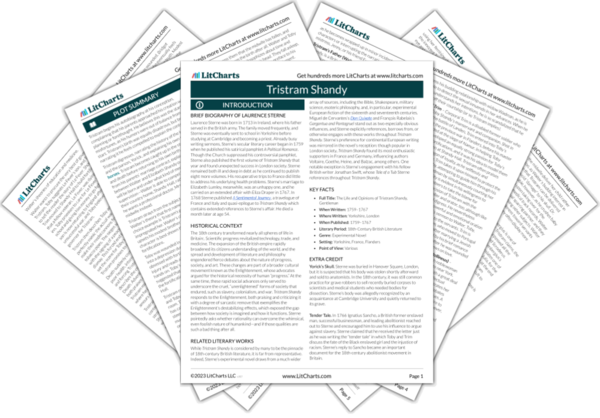Job is a Biblical character who, despite losing everything, never loses his faith in God, making Tristram’s comparison of Walter to Job humorous and ironic. Mrs. Shandy, not realizing Walter is quoting Socrates, thinks that he has kept a mistress on the side, with whom he has had another child. The misunderstanding goes entirely over the still-grieving Walter’s head.
